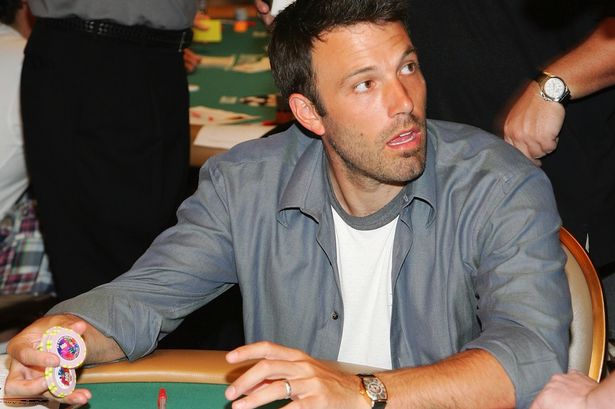How to Scam Casinos Successfully: Don’t Do This
Casino scams are the stuff of legend. Resorts spend millions of dollars on security technology to protect against cheaters and con artists. Individuals risk years in prison by participating in them. Most fail but there are some that actually work.
Here are some cheating techniques to avoid
Special Contact Lenses

It might seem like the stuff of sci-fi but special contact lenses have previously been used to pick up invisible ink that has been used to mark cards.
In 2011, a group of four con artists took €64,000 ($88,000) playing high stakes poker at the Les Princes Casino in Cannes. The cards were marked with a line indicating an Ace and a cross signalling a King.
One of those involved in the scam worked at the casino, so it was easily implemented. Suspicion grew around the group when they returned for a second session at the high stakes poker table later on in the week.
The marked cards were discovered after the potential for using infra-red glasses and micro cameras had been ruled out.
Returning to the scene of the original crime was the undoing of this scam.
Hacking Credit System Data

In an age where online security is such a prominent topic across the casino industry, this is perhaps a more relevant scam than ever before.
It was used by a pair of tricksters that referred to themselves as the ‘Roselli Brothers’ between 1995 and 2000. The duo hired a computer hacker to steal data from casino credit systems.
Individuals with the best credit had their identity stolen by the pair who then put $50,000 of their own money into the accounts. They then started withdrawing much larger amounts after receiving credit lines from the casinos.
It is believed the pair took $37 million from casinos across Nevada, New Jersey, and Puerto Rico.
This scam would be much riskier now due to tightening cyber security laws. However, the ‘Roselli Brothers’ got lucky and their scam was not uncovered until after their deaths.
Distracting Dealers

OK, so this might be a relatively simple one but it has still been used frequently.
It’s a scam that does exactly what it says. The scammers simply distract the dealer to either steal chips or tamper with playing cards. It is not as easy as it sounds though.
The perpetrators must avoid being spotted by the casino floor security staff or the more technologically advanced methods of security such as the eye-in-the-sky.
Ohio Casino Control Commission believed that almost 100 people were involved in a similar scam that hit casinos across the Buckeye State in 2012.
It was possible to take $2,000 worth of chips at a time with this scam and a number of those involved have evaded capture. Those that have been caught have had to serve prison time and were slammed with a $2,500 fine.
60 Second ATM Theft

This scam was a basic exploitation of a procedure put in place by Citibank at their cash advance kiosks that were placed at casinos in Nevada and California.
Multiple unrecorded withdrawals could be made at these kiosks within a 60 second period. The mastermind was an individual by the name of Ara Keshishyan.
No more than $10,000 could be withdrawn in one job. Although that didn’t stop the group of 14 individuals from swiping more than $1 million in 2012 through this method.
Cigarette Pack Radio Transmitters

The creative jobs are the most entertaining and this one has to be up there with the best casino cons.
In this 1973 scam, a roulette dealer at a French casino built a radio transmitter into a cigarette pack and placed a small receiver in the roulette ball. This meant the ball could be manipulated by the transmitter to land on certain sections of the table.
The dealer worked with his sister and brother-in-law to pull the job off. They walked away with 5 million francs ($1 million).
The trio were caught out when the casino owner, who was obsessed with the sister in the scam, paid close attention to her activity at the tables and noticed something fishy about her habits. He ordered a security sweep of the tables during play and the scam was foiled.
Using Counterfeit Coins

Louis ‘The Coin’ Colavecchio was the man behind this plan. He used his close links to criminal networks and jewellers to produce masses of counterfeit coins that worked on casino slot machines in Las Vegas.
Colavecchio was busted in 1998. It is not known how much money he stole using the counterfeit coins approach.
After six years in jail, Colavecchio was released but arrested once more in 2006 for counterfeiting coins again. Clearly, casino security teams would not be fooled twice.
Card Counting

Another popular method of scamming casinos is card counting. It is not necessarily deemed illegal but if casinos pick up on even the slightest hint of card counting then they ban the individuals involved from their floors.
The most famous victim of card counting action has to be Hollywood actor Ben Affleck. In 2014, the actor admitted that he had been banned from casinos across Las Vegas after being suspected of card counting.
It’s one of the oldest tricks in the book. The MIT Blackjack Team were the pioneers when they took millions of dollars from US casinos between 1979 and 2000. Unfortunately, casinos are switched onto it now and act quickly if there is even any suspicion of card counting.
Edge Sorting
Former professional poker player Phil Ivey is arguably the world’s most famous edge sorter.
His scam (although Ivey prefers to call it ‘advantage play’) is alleged to have taken place at the Borgata Hotel Casino and Spa in Atlantic City back in 2014.
Ivey won $9.6 million but the casino refused to pay out, suspecting the multiple World Series of Poker bracelet winner of foul play. Ivey had also already been sued by London casino Crockford’s in 2012 for the time he won £7.3 million ($11 million) playing punto banco.
On that occasion, the law courts ruled in favour of the casino. It is now an act that many casinos refuse to be caught out on in the future.
It’s probably best to avoid edge sorting… especially if you are winning millions of dollars each session. Never draw attention to yourself if you’re scamming.



